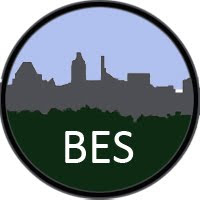The Benefits of the Urban Tree Canopy
Urban tree canopy provides many benefits such as cooling and air pollution mitigation. The extent to which individual trees contribute to these services depends on their species and size. However, […]
This author has not written his bio yet.
But we are proud to say that Mary Martin contributed 8 entries already.
Urban tree canopy provides many benefits such as cooling and air pollution mitigation. The extent to which individual trees contribute to these services depends on their species and size. However, […]
The BES education research agenda covers the gamut from exploring how individual students learn about their city as an ecosystem to an attempt to rigorously describe the formal and in-formal […]
Today, cutting-edge advances in environmental sciences often are made with the aid of computational research using “big data” sets that are publicly available online. Scientists use big data to model […]
Full-Time in Millbrook, NY – Scientific POSITION: Recruiting two Postdoctoral Associates to work on synthetic analyses for the the Baltimore Long Term Ecological Research project. We seek postdoctoral researchers interested in synthesis of long-term […]
During the summer of 2015 and for the first time, BES partnered with the Parks & People Foundations’ Branches program to bring BES research to the level of school-age students […]
From The Atlantic Feb 8, 2018 On a frigid day in the West Baltimore neighborhood of Harlem Park, Chris Swan parks his pickup on a block where vacant lots outnumber […]
This research was supported by funding from the NSF Long-term Ecological Research (LTER) Program. This material is based upon work supported by the National Science Foundation under Grant Nos. DEB-1637661 and DEB-1855277. Any opinions, findings, and conclusions or recommendations expressed in this material are those of the author(s) and do not necessarily reflect the views of the National Science Foundation.
The Baltimore Ecosystem Study has been a National Science Foundation Long Term Ecological Research (LTER) site since 1998. Visit other LTER sites.
 |
 |
